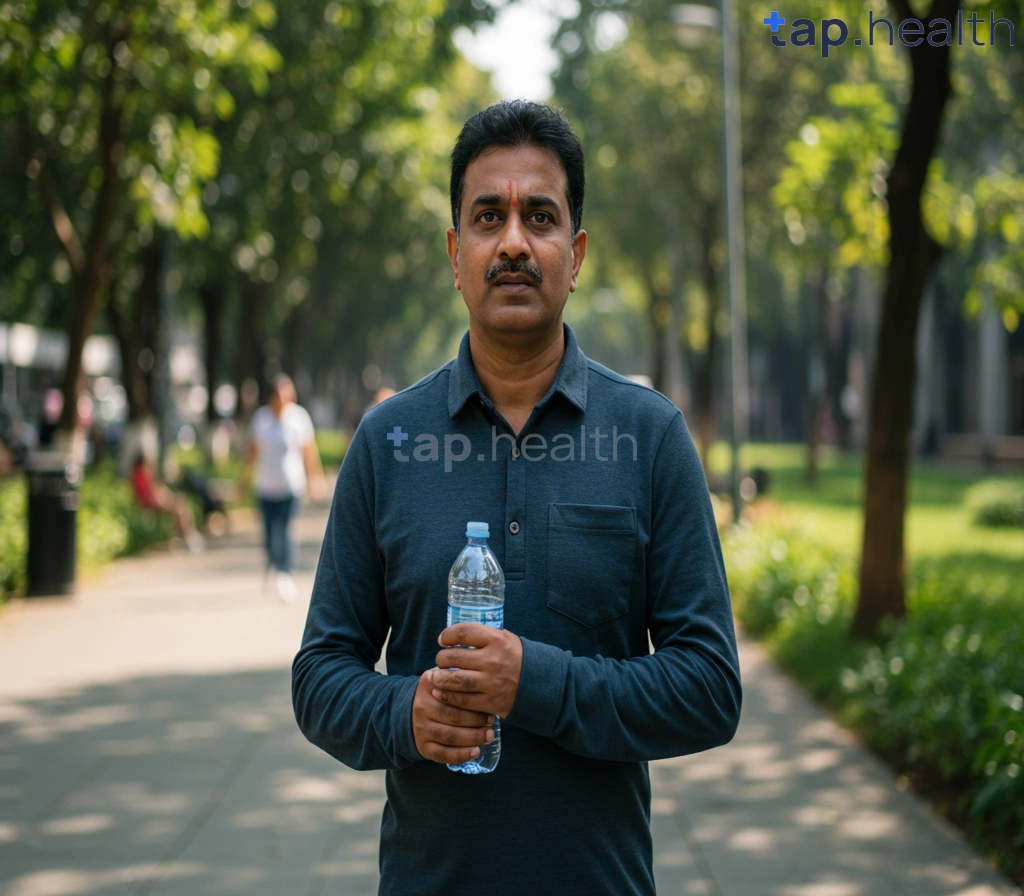Table of Contents
- Mastering Blood Sugar: A Comprehensive Guide
- Effective Strategies for Diabetes Management
- Understanding Diabetes Complications: Prevention & Care
- Diabetes Diet: Food Choices for Blood Sugar Control
- Maintaining Healthy Blood Sugar Levels: Tips & Tricks
- Frequently Asked Questions
- References
Living with diabetes can feel like navigating a complex maze, but understanding the fundamentals of blood sugar management is the key to unlocking a healthier, happier life. This comprehensive guide, Understanding Diabetes: Your Guide to Managing Blood Sugar Levels (Page 39 of 122), is designed to help you just that. We’ll break down the complexities of diabetes in a clear, accessible way, empowering you to take control of your health. From understanding the different types of diabetes to mastering practical tips for daily management, we’ll cover it all. So, let’s begin this journey together and start building a stronger, more informed approach to your diabetes care. Get ready to learn the strategies that can make a real difference!
Mastering Blood Sugar: A Comprehensive Guide
Maintaining healthy blood sugar levels is crucial for managing diabetes, especially in hot and humid climates prevalent in many Indian and tropical countries. Understanding your body’s response to heat and humidity is key. While general guidelines suggest aiming for blood pressure below 140/90 mmHg, or even below 130/80 mmHg for some, individual targets should be discussed with your doctor. These targets are especially important to prevent long-term complications. Remember, your doctor can provide personalized advice based on your specific health needs and regional context.
Monitoring and Managing Blood Sugar in Tropical Climates
Fluctuations in blood sugar can be influenced by factors like diet, physical activity, and even the weather. In tropical regions, increased sweating can lead to dehydration, potentially affecting blood sugar levels. Therefore, staying adequately hydrated is paramount. Regular monitoring using a blood glucose meter is essential. Pay close attention to your diet – opting for fresh, seasonal fruits and vegetables readily available in your region is beneficial. Include foods with a low glycemic index to prevent rapid spikes in blood sugar. For more information on maintaining healthy blood sugar levels, see our guide on Blood Sugar Levels.
Practical Tips for Blood Sugar Control
Regular exercise is vital, but be mindful of the intense heat. Choose cooler times of the day for physical activity, and always stay hydrated. Consult with a diabetes specialist or endocrinologist familiar with the challenges specific to your region. They can offer tailored advice on diet, exercise, and medication management, considering the unique aspects of tropical climates. Remember to always carry glucose tablets or a sugary drink in case of a sudden drop in blood sugar.
Taking Control of Your Diabetes
Managing diabetes effectively requires consistent effort and a proactive approach. Schedule regular check-ups with your healthcare provider. By understanding your body’s unique needs and adapting your management plan to your environment, you can effectively manage your diabetes and live a healthier, more fulfilling life. Find a diabetes support group in your local area for additional support and community. Your health journey is a marathon, not a sprint. Understanding what constitutes a normal blood sugar level is crucial; learn more by reading our article, Is a 100 mg/dL Blood Sugar Level Normal? Comprehensive Guide.
Effective Strategies for Diabetes Management
Taking control of your blood sugar is crucial, especially in regions like India and other tropical countries where diabetes prevalence is high. The good news is that up to 80% of Type 2 diabetes cases can be delayed or prevented through proactive lifestyle changes. This empowers you to actively participate in managing your health.
Dietary Adjustments for Blood Sugar Control
A balanced diet is paramount. Focus on incorporating plenty of fresh fruits and vegetables, especially those readily available in your region. Limit processed foods, sugary drinks, and refined carbohydrates often found in readily available snacks. Consider incorporating traditional Indian spices known for their anti-inflammatory and blood sugar-regulating properties, such as turmeric and cinnamon. Remember, portion control is key to maintaining healthy blood sugar levels.
Lifestyle Modifications for Better Health
Regular physical activity is essential. Aim for at least 30 minutes of moderate-intensity exercise most days of the week. This could include brisk walking, yoga, or any activity you enjoy and can easily incorporate into your daily routine. Prioritizing sleep is also crucial. Aim for 7-8 hours of quality sleep each night to support your body’s natural regulation of blood sugar. Managing stress through techniques like meditation or deep breathing exercises can also significantly impact your blood sugar levels. For more specific tips, check out our guide: 10 Proven Tips to Effectively Manage Diabetes | Simple Guide.
Seeking Professional Guidance
Regular check-ups with your doctor or a certified diabetes educator are vital. They can provide personalized advice, monitor your progress, and adjust your treatment plan as needed. Don’t hesitate to seek support from your healthcare provider; proactive management is key to living a healthy life with diabetes. In India and other tropical countries, access to affordable healthcare varies. Make it a priority to find resources and support that work for you. Learning more about effective management strategies can be incredibly helpful, and you might find our article, 10 Proven Tips for Effective Diabetes Management, particularly useful.
Understanding Diabetes Complications: Prevention & Care
Diabetes, a growing concern globally, disproportionately affects the working-age population in many Indian and tropical countries. A significant 61% of those living with diabetes are between the ages of 20 and 64, highlighting the urgent need for proactive management. Data from the International Diabetes Federation shows that this age group represents a crucial segment requiring focused attention on preventing complications.
Recognizing the Risks
Long-term complications of diabetes, if left unmanaged, can severely impact various organs. These include cardiovascular disease (heart attacks and strokes), kidney disease (nephropathy), nerve damage (neuropathy), eye damage (retinopathy), and foot problems. In hot and humid climates prevalent across many Indian and tropical regions, these complications can be further exacerbated by factors like increased susceptibility to infections and dehydration. Early detection and consistent management are paramount.
Preventive Measures & Ongoing Care
Effective diabetes management starts with regular blood sugar monitoring, a healthy diet tailored to regional preferences, and appropriate physical activity. For many in India and tropical countries, this could involve incorporating traditional foods with low glycemic index while adapting exercise routines to the climate. Regular check-ups with healthcare professionals are crucial for early detection of complications and prompt intervention. This is especially important for those aged 65+, who comprise 39% of the diabetic population and are at higher risk. For practical tips on preventing long-term complications, see our guide on How to Prevent Long-Term Complications of Diabetes: Easy Tips.
Taking Charge of Your Health
Don’t let diabetes define your life. By adopting a proactive approach to management and seeking regular medical advice tailored to the specific challenges faced in Indian and tropical climates, you can significantly reduce the risk of complications and improve your quality of life. Seek support from local diabetes clinics or healthcare providers to create a personalized management plan. Understanding the unique challenges of managing diabetes as you age is also crucial; read more in our article, Managing Diabetes as You Age: Challenges and Solutions.
Diabetes Diet: Food Choices for Blood Sugar Control
Managing blood sugar levels effectively is crucial for individuals with diabetes, and diet plays a pivotal role. Research suggests that controlling carbohydrate intake is key, with a common recommendation of 45–60 grams of carbs per meal for many. However, this can vary greatly depending on individual factors like activity levels, medication, and overall health. It’s essential to consult with a doctor or certified diabetes educator to personalize your carbohydrate intake.
Understanding Carbohydrates in the Indian and Tropical Diet
Many staple foods in Indian and tropical countries, such as rice, roti (flatbread), and various starchy vegetables, are rich in carbohydrates. This requires a mindful approach to portion control. Instead of eliminating these foods entirely, focus on incorporating them strategically. For example, opt for brown rice over white rice, as it contains more fiber, which helps regulate blood sugar levels. Similarly, choose whole-wheat roti over refined-flour versions.
Incorporating Healthy Choices
Alongside portion control, incorporating foods rich in fiber, protein, and healthy fats is vital. Plenty of fresh fruits and vegetables, lentils (dal), and lean protein sources like fish and chicken are excellent additions to a diabetes-friendly diet. Spices commonly used in Indian and tropical cuisine, like turmeric and cinnamon, may also offer additional health benefits. Remember to prioritize seasonal, locally sourced produce for optimal freshness and nutritional value. For more specific food recommendations, check out our article on the 20 Best Foods for People with Diabetes.
Seeking Expert Guidance
Managing diabetes effectively requires a personalized approach. While general guidelines exist, the best strategy depends on individual needs and preferences. We strongly encourage you to consult with a doctor or registered dietitian in your region for tailored advice and support. They can help you create a meal plan that aligns with your lifestyle and cultural preferences, ensuring you maintain healthy blood sugar levels while enjoying the diverse and delicious foods available in your area. If weight loss is also a goal, you might find our blog on How to Lose Weight with a Diabetes Diet Plan helpful.
Maintaining Healthy Blood Sugar Levels: Tips & Tricks
Understanding your blood sugar levels is crucial for managing diabetes, especially in hot and humid climates prevalent across India and tropical countries. Remember, a blood sugar level less than 140 mg/dL is considered normal, while 140–199 mg/dL suggests prediabetes, and 200 mg/dL or higher indicates diabetes. Managing these levels effectively requires a holistic approach.
Dietary Adjustments for Stable Blood Sugar
Diet plays a pivotal role. Focus on incorporating foods with a low glycemic index (GI), meaning they cause a slower rise in blood sugar. In India, this could mean emphasizing whole grains like moong dal or rajma over refined carbohydrates like white rice. Prioritize fresh fruits and vegetables abundant in the region, and limit sugary drinks, common in many tropical areas. Regular, smaller meals throughout the day are also beneficial to prevent significant blood sugar spikes. Remember to consult a doctor or registered dietitian for personalized dietary advice. For more natural ways to improve your blood sugar, check out our article on Top 8 Natural Remedies to Improve Blood Sugar Levels.
Lifestyle Changes for Better Blood Sugar Control
Beyond diet, regular physical activity is essential. Even short bursts of activity, like a brisk walk after meals, can help regulate blood sugar levels. The heat in tropical climates can be challenging, so choose cooler times of the day for exercise and stay hydrated. Managing stress is also crucial, as stress hormones can impact blood sugar control. Consider incorporating yoga or meditation, practices deeply rooted in Indian culture, to help manage stress effectively. Building consistent healthy habits is key, and you can learn more about that in our guide on How to Build Habits That Help Control Blood Sugar Levels.
Seeking Expert Guidance
Regular check-ups with your doctor are non-negotiable for effective diabetes management. They can help monitor your blood sugar levels, adjust medications if necessary, and provide personalized recommendations based on your specific needs and the climate you live in. Don’t hesitate to seek support from diabetes educators and support groups available in your community. Taking proactive steps towards managing your blood sugar can significantly improve your quality of life.
Frequently Asked Questions on Understanding Diabetes: Your Guide to Managing Blood Sugar Levels
Q1. How can I manage my diabetes effectively, especially in a hot and humid climate?
Focus on regular blood sugar monitoring, a diet rich in low glycemic index foods with portion control, and regular physical activity adapted to the weather. Consult a healthcare professional for a personalized plan that considers your lifestyle and preferences.
Q2. What dietary changes are recommended for better diabetes management?
Prioritize low glycemic index foods and control your carbohydrate portions. A healthcare professional can help you create a meal plan that suits your needs and cultural preferences.
Q3. Besides diet, what other lifestyle changes can help manage diabetes?
Regular physical activity, stress management, and sufficient sleep are crucial. Support groups can provide encouragement and guidance.
Q4. How important are regular check-ups and consultations with healthcare professionals?
They are vital. Regular check-ups help monitor your blood sugar levels and detect potential complications early. Consultations allow for personalized plans and address any concerns.
Q5. What preventative measures can I take to reduce my risk of developing diabetes or its complications?
Early detection is key. Maintain a healthy lifestyle through diet, exercise, and stress management. Regular check-ups with a healthcare professional are also essential.
References
- Children with Diabetes : A resourse guide for families and school. : https://www.health.ny.gov/publications/0944.pdf
- A Practical Guide to Integrated Type 2 Diabetes Care: https://www.hse.ie/eng/services/list/2/primarycare/east-coast-diabetes-service/management-of-type-2-diabetes/diabetes-and-pregnancy/icgp-guide-to-integrated-type-2.pdf




